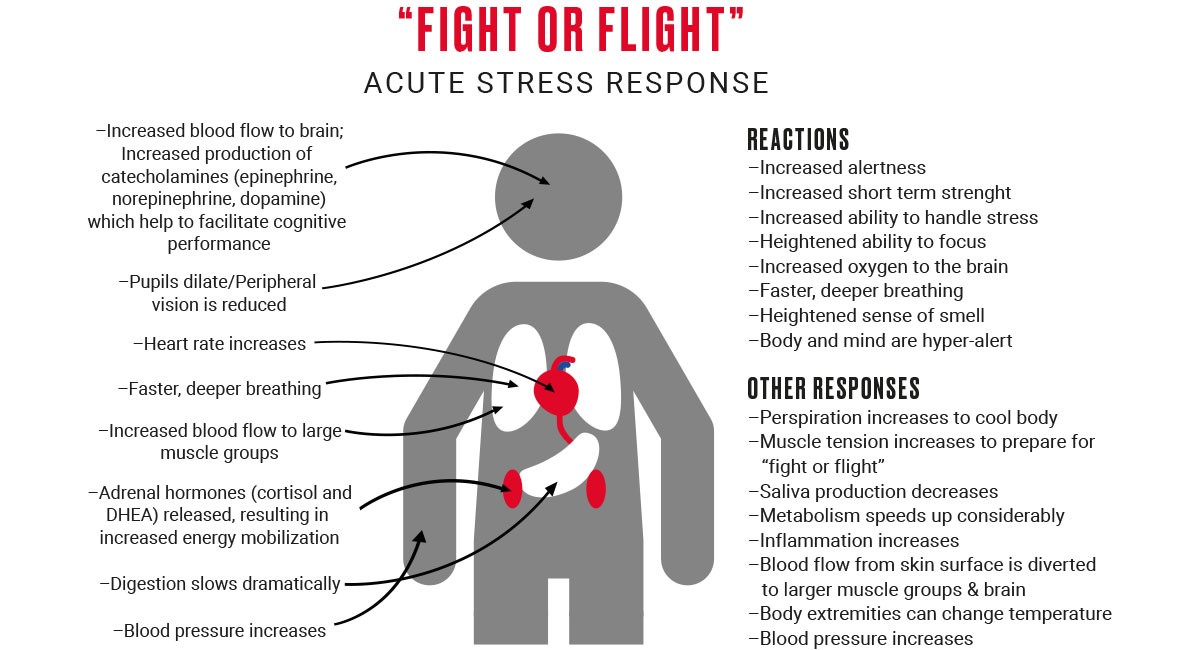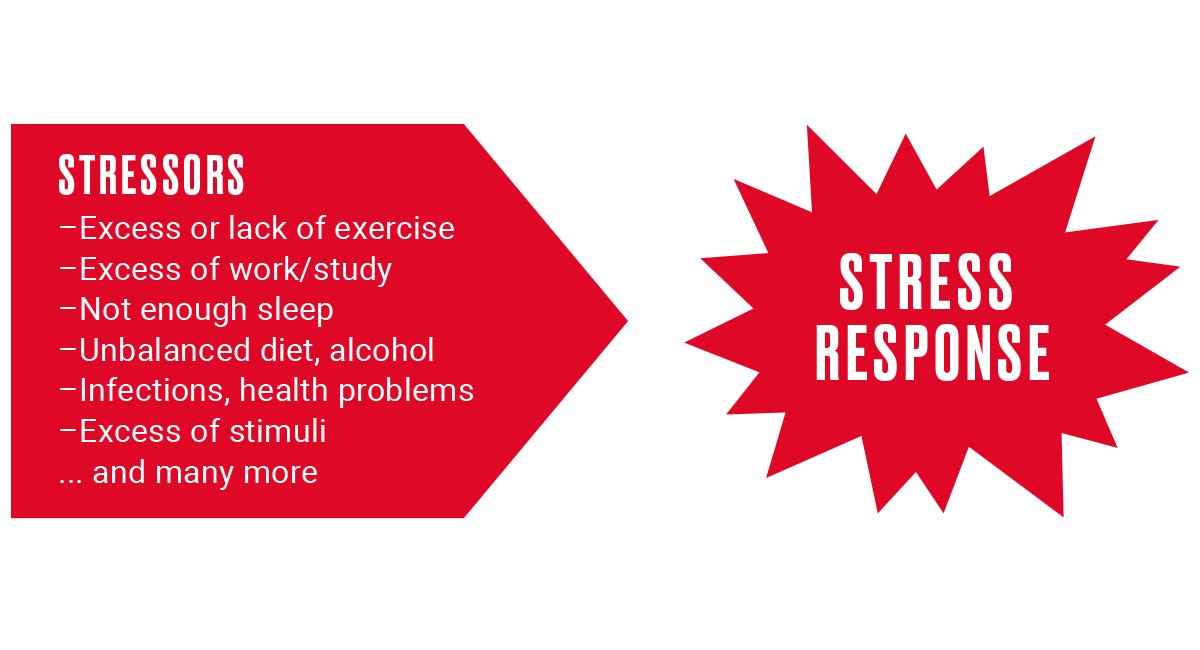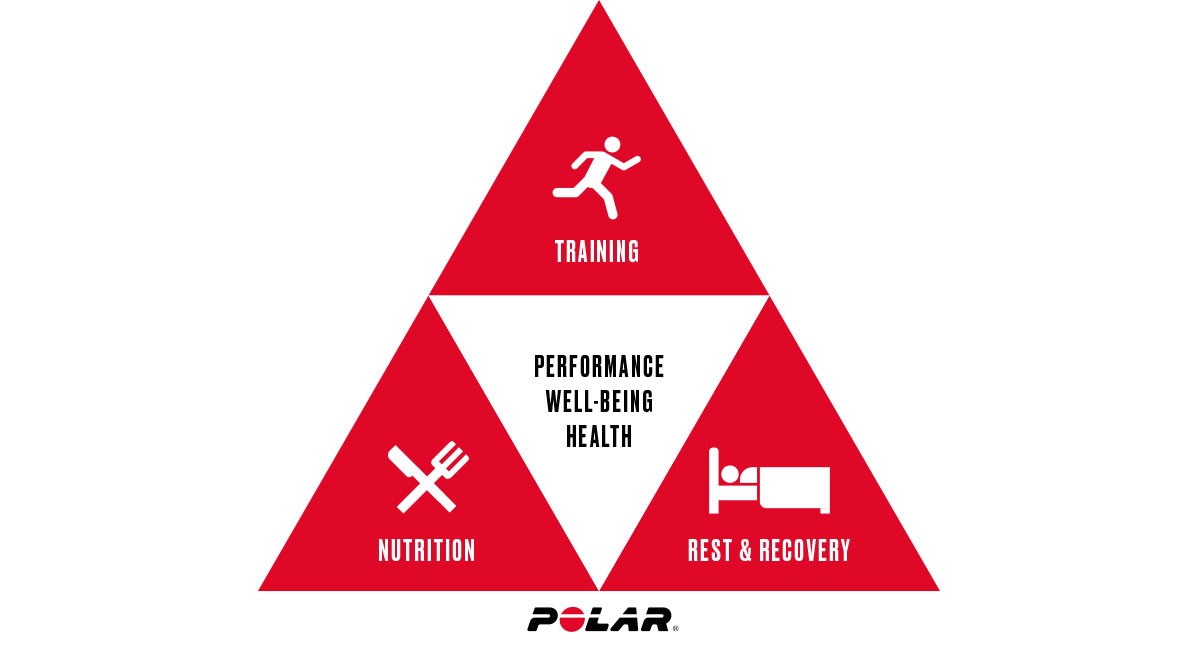You probably know that recovery from exercise is key if you want to see results from your workouts.
Most likely you also know several ways (and maybe even take action) to boost recovery: post-workout recovery routines, active recovery workouts, the right kind of nutrition before and after a workout and scheduling enough rest days.
With that said, if we only focus on how well we recover from exercise and physical exertion, we may ignore that stress – whether it’s stress on your body or mind (or both) – plays a role in our overall recovery and affects how soon we’re ready for another workout.
It’s a common belief that once our sore muscles have recovered from our previous workout, we’re good to go again. But, it is possible that exercising (especially at high intensity) can take a toll on your body if you’re already experiencing high stress levels – even if you don’t feel physically strained.
Here’s how stress affects recovery from exercise and what you can do about it.
How stress affects your body
When you experience a stressful event, your brain sends a signal through your autonomic nervous system, telling your body to stay and deal with the stressful situation (‘fight’) or run away (‘flight’).
The sympathetic nervous system, which is one of the two divisions of the autonomic nervous system, triggers the ‘fight-or-flight’ response, providing the body with a burst of energy so that it can respond to perceived dangers.
The other branch of your autonomic nervous system, the parasympathetic nervous system, promotes the ‘rest and digest’ response that calms the body down after the danger has passed.
Even when the stress is psychological, it causes physical reactions in your body, such as increase in heart rate, blood pressure and breathing rate.
No doubt that the stress response is extremely useful in actual physical danger, enabling you to quickly jump out of the way of an approaching car, for example. The tricky thing is that the same response is activated even when you’re not in any real danger.
Over time, repeated activation of the stress response can lead to chronic stress with frequent infections or illnesses, fatigue, sleeping difficulties, digestive problems, changes in appetite, anxiety, and even depression.

How stress affects recovery from exercise
With respect to stress, exercise has a dual role. On one hand, exercise provides obvious benefits and helps reduce mental stress – there’s nothing like a tough sweaty workout to get your mind off anything that may be stressing you.
After really getting your sweat on, the feel-good hormones produced by exercise will put a smile on your face and your work-related problems or other stress factors will be the furthest thing from your mind (if not, at least, on pause for a while).
On the flip side, exercise also causes stress and strain on the body. Even if you feel physically fine, a hardcore HIIT session may not be the best way to relieve stress if you’re super stressed because of work, family or other struggles in your life.
It’s good to keep in mind that there’s a risk that training hard will add to your existing stress levels (especially if you overdo it and always train at a high intensity), although light exercise or active recovery methods are usually effective in relieving stress.

To see fitness results, you need to (of course) work out effectively, but also balance your workouts with enough rest and recovery. Why? Because prolonged stress can decrease your readiness and tolerance for exercise, which means your body will adapt to training more poorly and you won’t be able to perform at your best.
The essential building blocks of fitness, health and wellbeing:

If you’re feeling stressed out, putting in long hours at work, while struggling to balance family, friends, other commitments and workouts with your job, your autonomic nervous system may be going on overdrive.
Working out after one stressful day isn’t necessarily a no-no, but if you’ve been stressed out and sleep deprived for a longer period of time, your overall recovery status should be a factor when you plan your workouts.
How to monitor recovery
From a measurement point of view, recovery means that your autonomic nervous system activated during the stressful situation returns to and stabilizes to its usual level.
Your heart rate, heart rate variability (HRV) and breathing rate during the early hours of your sleep are metrics that reveal how well your autonomic nervous system recovers, a.k.a. how your body bounces back from a stress response.
These metrics vary from person to person, so it’s best to compare your values to your usual level.
- A lower heart rate than usual means better recovery.
- Heart rate variability means variation in beat-to-beat intervals of your heart. In general, high HRV is linked to good health, high cardiovascular fitness and strong resilience to stress.
- A fast and often irregular breathing rate is a sign of a stress response.
- Sleep quality is an indicator of stress and recovery.
3 simple ways to boost recovery
When you pay attention to how you feel and have data that shows your recovery status, you can more effectively take action to boost your recovery as a whole.
Exercise
Many find that exercise is an effective way to relieve stress. By breaking a sweat, you’ll allow your body to use the energy rush created by the stress response, start breaking down excess stress hormones and increase endorphins, the feel-good hormones. Regular exercise, of course, improves your fitness and creates long-term benefits for your health and wellbeing.
But, to gain maximum benefits and achieve fitness results, you need to balance training with recovery with two simple, but effective, ways: sleep and breathe.
Sleep
As mentioned before, sleep quality is an indicator of stress and recovery can be measured during sleep as it is the main recovery period in a 24/7 cycle.
Sleep is essential for recovery from exercise and daily stress as restorative functions like muscle growth, tissue repair, protein synthesis and growth hormone release occur mostly during sleep.
Inadequate sleep has negative effects on cognitive functions, mood and motivation. Poor sleep can affect training and performance directly, through fatigue, or indirectly, through increased performance anxiety. Disturbed sleep can also increase the risk of illness and exercise-induced injuries.
That’s why knowing how you sleep and taking action to improve your sleep are key steps towards better fitness results and overall well-being.
Breathe
You can boost your recovery even when you’re awake with different relaxation techniques, such as deep breathing.
Learning a breathing technique to trigger the relaxation response will take some practice, but once you get the hang of it, mindful deep breathing is a simple, but proven, way to relieve stress.
Practising mindful deep breathing just 10-20 minutes a day helps build resilience and reduce cumulative effects of stress in the body. This will allow your body to recover more effectively, be better prepared for exercise (stress caused by physical exertion) and achieve better fitness results.
By monitoring and boosting your recovery, you’ll be able to optimize your fitness results and overall well-being.
If you liked this post, don’t forget to share so that others can find it, too.
Or give it a thumbs up!
I like this article
Please note that the information provided in the Polar Blog articles cannot replace individual advice from health professionals. Please consult your physician before starting a new fitness program.





